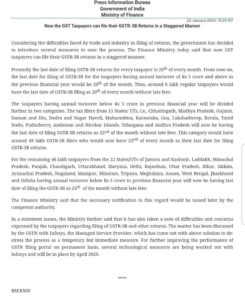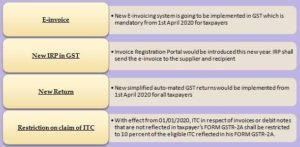 As part of Government of India’s Ease of Doing Business (EODB) initiatives, the Ministry of Corporate Affairs would be shortly notifying & deploying a new Web Form christened ‘SPICe+’ (pronounced ‘SPICe Plus’) replacing the existing SPICe form.
As part of Government of India’s Ease of Doing Business (EODB) initiatives, the Ministry of Corporate Affairs would be shortly notifying & deploying a new Web Form christened ‘SPICe+’ (pronounced ‘SPICe Plus’) replacing the existing SPICe form.
SPICe+ would save as many procedures, time and cost for Starting a Business in India and would be applicable for all new company incorporation w.e.f 15th February 2020
Key Features of Spice+
- SPICe+ would be an integrated Web Form i.e. fill form online like GST registration forms. The new web form would Facilitate on-screen filing and real time data validation for seamless incorporation of companies.
- Information once entered can be saved and modified. All Check form and Pre-scrutiny validations will happen on web form itself.
- DSC validation and other validations will happen at Upload Level
- Once the SPICe+ is filled completely with all relevant details, the same would then have to be converted into pdf format, with just a click of the mouse button, for affixing DSCs.
- Digitally signed applications can then be uploaded along with the linked forms as per the existing process.
- Changes/modifications to SPICe+ (even after generating pdf and affixing DSCs), can also be done by editing the same web form
- Spice+ would have 2 parts:
- a) Part A : for name reservation for new incorporation
- b) Part B : Part B offering a bouquet of services i.e.
- Incorporation
- DIN allotment
- Mandatory issue of PAN / TAN
- Mandatory issue of EPFO / ESIC registration
- Mandatory issue of Profession Tax registration (Maharashtra)
- Mandatory Opening of Bank Account for the Company
- Allotment of GSTIN (if so applied for)
- Part A can be filed first for reserving name or Part A & B can be filed together at one go.
- Re submission would be easy, if required.
- Registration for EPFO and ESIC shall be mandatory for all new companies incorporated w.e.f 15 February 2020 and no EPFO & ESIC registration nos. shall be separately issued by the respective agencies.
- Registration for Profession Tax shall also be mandatory for all new companies incorporated in the State of Maharashtra w.e.f 15th February 2020.
- All new companies incorporated through SPICe+ (w.e.f 15th February 2020) would also be mandatorily required to apply for opening the company’s Bank account through the AGILE-PRO linked web form.
- Declaration by all Subscribers and first Directors in INC-9 shall be auto-generated in pdf format and would have to be submitted only in Electronic form in all cases, except where:
- Total number of subscribers and/or directors is greater than 20 and/or
- Any such subscribers and/or directors has neither DIN nor PAN






